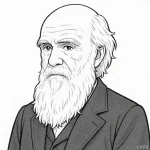“All animals are equal, but some animals are more equal than others.”

- June 25, 1903 – January 21, 1950
- Born in India during the British colonial period
- Author, journalist
table of contents
Quote
“All animals are equal, but some animals are more equal than others.”
Explanation
In this famous quote from George Orwell’s Animal Farm, Orwell illustrates the hypocrisy inherent in totalitarian regimes and how they can distort the very principles they claim to uphold. The quote comes from the point in the story where the animals, initially inspired by the idea of equality and freedom, find themselves subject to a new form of oppression. The phrase “all animals are equal” represents the initial revolutionary ideal that everyone, regardless of their position, should be treated equally. However, as the pigs—who take control of the farm—begin to adopt more authoritarian practices, they amend this ideal, creating a system where some animals, particularly the pigs, are given privileges and power, while the others are left to work harder under even worse conditions. The phrase “more equal” is an oxymoron, highlighting the inherent contradiction in the new leadership’s stance: they are trying to justify inequality by claiming it as a form of equality, thus manipulating language to serve their own interests.
Orwell’s critique is of political corruption and the way in which revolutionary ideals can be distorted once those in power start to benefit from the system they originally sought to overthrow. The pigs in Animal Farm mirror the behavior of many political leaders who begin by advocating for the common good but, once in power, become corrupt and use language and rhetoric to justify their increasing privileges and control. The irony in the statement “more equal” demonstrates how the abuse of power often leads to double standards and the manipulation of ideals to serve the interests of a ruling class.
This concept remains relevant today, as the manipulation of language and ideals is still used by many in power to justify inequality and oppression. Whether in politics, business, or social structures, those in power often claim to promote equality and justice while simultaneously creating systems that favor their own privileges. Orwell’s quote serves as a cautionary tale about the dangers of unchecked power and the ease with which leaders can manipulate ideals to justify their self-interest while betraying the very principles they initially claimed to uphold.
Would you like to share your impressions or related stories about this quote in the comments section?



